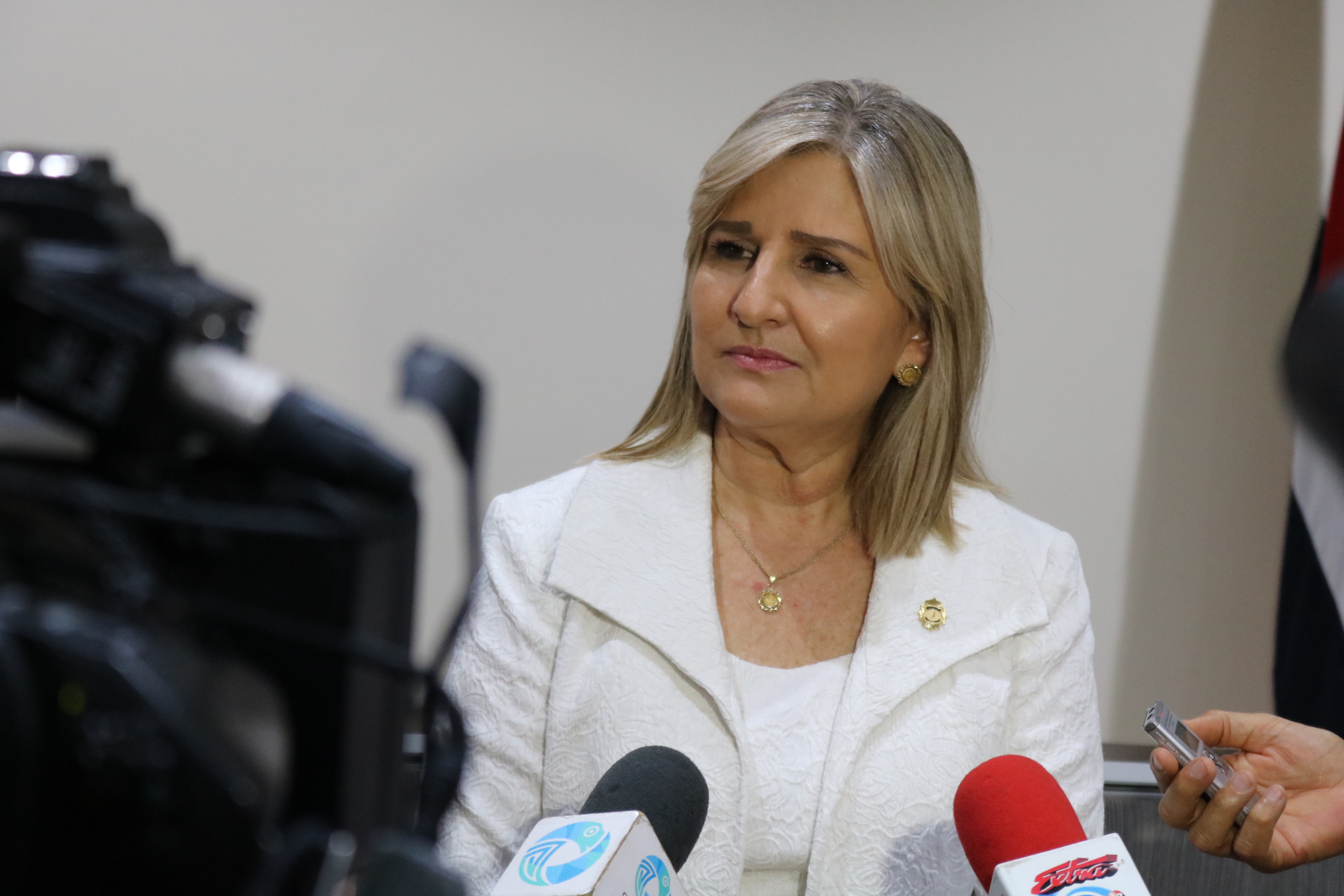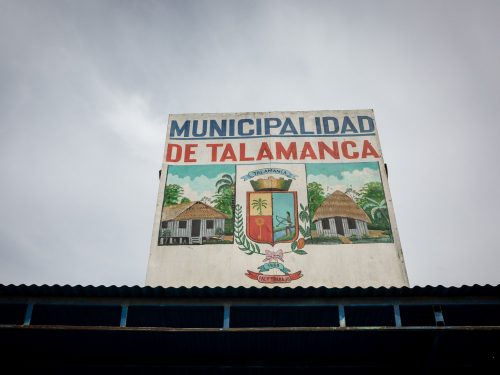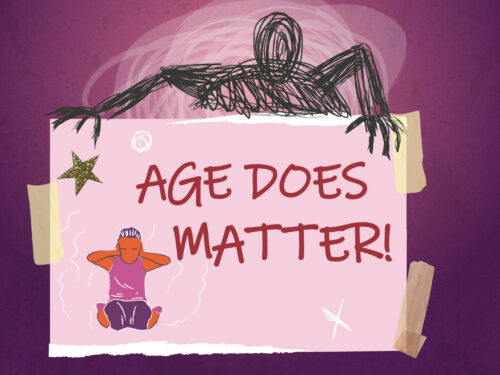
On January 28, the Attorney General’s Office reopened an investigation against the National Integration Party’s candidate for vice mayor of Nicoya, after The Voice of Guanacaste revealed that he had an improper relationship with a 16-year-old girl.
Diego Ramirez Nuñez, who withdrew his candidacy after the revelation, is 24 years old and confirmed on social networks that he had a relationship with a teenager with whom he has a five-month-old baby girl. The teenager became pregnant at age 15 according to public data from the Civil Registry.
The Voice revealed that the Nicoya Prosecutor’s Office opened a case against Nuñez and then closed the file when the victim refused to testify against him. “We didn’t have evidence to continue the investigation,” they affirmed through their press department. This happened twice last year after two different complaints.
The attorney general said that she learned about Ramirez’s case after it was published by this newspaper on January 22. Afterward, she studied the file and acknowledged that the Nicoya Prosecutor’s Office had erred in the “approach and resolution” of the case.
Navas stated that she personally issued a directive in 2018 to avoid dismissals when victims refuse to testify. She explained that the young victims usually remain within the circle of violence and “tend to not testify, not report and to tolerate all of these violent situations.”
Between 2018 and 2019, 695 cases of sexual relations with minors (improper relationships) were reported in Guanacaste. Of these, only 289 passed the first stage of investigation and prosecutors filed an accusation against those investigated, according to judiciary authority statistics.
In this exclusive interview with The Voice of Guanacaste, Navas assured that the Attorney General’s Office will open an internal investigation to find out the reasons why Ramirez’s case was dismissed twice.
This is an excerpt from the conversation:
What does the directive that you issued about the way the prosecutor’s office should approach cases of improper relationships address?
I determined that the investigations for improper relationships were being dismissed solely because the victim showed no interest in the process or was going to refrain from making a statement. As there are many ways to prove things in criminal investigation processes, I issued the directive to stop dismissing just because the victim does not testify, and to clarify matters with other elements of judgment to determine if the event had occurred.
What steps should be followed when the victim decides not to testify?
Whether making a statement or not, the evidence looked for in these types of cases must be requested from the beginning; it should not be requested as a substitution for the victim’s statement. It is the victim’s statement, plus other witnesses and other types of evidence.
So how should a prosecutor act in a case like this?
The most important thing is that the prosecutor’s reaction must be immediate. It is not one of those cases in which I receive the complaint, then I examine it, then I see what evidence I have or if later there is the possibility of something else. It’s not like that. In other words, in general, the reaction of investigation must be immediate in all acts of violence against women.
Is there a type of penalty for prosecutors who do not comply with this directive? In this case from Nicoya, for example.
In situations like this, we have to analyze case by case. [In the case from Nicoya], it has to be determined why a directive was communicated and was not followed. An investigation is opened at the administrative level and they investigate whether it was a reckless situation, intentional or if it was negligence.
Speaking of prosecutors, how has the Attorney General’s Office handled these matters in regions like Guanacaste?
Prosecutors in the province of Guanacaste have come to receive courses, not only of a criminal nature but also about sensitivity. There have also been talks where they are told about the treatment with which the victims have to be approached.
From your perspective, how is Guanacaste doing with gender sensitivity and improper relationships?
The deputy prosecutor of Santa Cruz and the deputy prosecutor of Liberia are very experienced and sensitive people, highly qualified to be able to collaborate with the prosecutors on their work teams so that investigations are carried out correctly. I am at ease.
Does the prosecutor’s office coordinate with PANI in cases of improper relationships, for example?
Yes, depending on the protocol, these institutions act in a joint manner. The advantage is that there are many institutional, national and international elements that allow us to approach these types of events jointly. We all act together for the well-being of the young women.
What kind of evidence can I show about an improper relationship?
If there is a person who is a neighbor and makes known that these events are happening, they can report it directly or confidentially to OIJ or the Public Ministry. They can come to do it personally, send an email or access the confidential number that OIJ has. Here the important thing is that the reaction of the prosecutor that receives the complaint has to be immediate. It is not one of those cases in which I receive the complaint, then I examine it, then I see what evidence I have or if later there is the possibility of something else. In other words, the prosecutors who receive such cases must react iimmediately in all acts of violence against women.
How would I follow up on a case that I reported? For example, the mother of the young woman involved in the Ramirez case admits that she did report the relationship, but since it was dismissed, she assumed there was no crime.
Victims or complainants may generally be informed of the outcome of the investigations if they provide a means of contact. Logically, the mothers of young victims of this type of crime have the possibility of coming to the Public Ministry and discussing what they want with the prosecutors. Their testimony is very important for the investigation.
What can complainants do when a prosecutor dismisses an act as clear as the Ramirez case? That is to say, evidence existed that proved their relationship, such as the existence of a baby together and even so, it was dismissed…
When that happens and the way it is managed doesn’t have a basis, as in this case, it needs to be brought to the attention of the Public Ministry headquarters leadership. Always speak up and communicate. The Ministry leadership will always listen and act as we did with this case, in which we examined the file and realized that they stopped doing the necessary and pertinent diligence, so we reopened the case so that it gets handled again.
You talk about pertinent diligence. What other evidence can prove an improper relationship?
In Costa Rica, there is no fixed evidence in any type of crime. That means that in investigations, the facts can be proven in different ways and with different manners of proof: testimonials, documentary evidence, photographs, performing a blood test of the child that they had in the relationship to confirm if the defendant is the father of the child, you can access information on social networks or electronic devices. That is to say … there are multiple ways to confirm whether or not a crime of this type was committed.
The improper relationships law was reformed in 2017. Do you think that it has generated changes in the statistics of complaints?
What I can tell you is that complaints are being received. I do not have at hand the circulating number of cases that occur for this crime but you can see the number of complaints that were received after the reform.
What is your impression of the results of the improper relationships law?
It is important to look at and support all of the laws and reforms that are necessary to protect women from violent acts. This is even more necessary because minors are being protected, who are in the middle of the age range when they more easily become victims. These young women, precisely in the circle of violence that they are in, tend to not testify, not report and to tolerate all these situations.
Can this law be considered successful?
Thanks to this reform, this type of violence against adolescents is not being left unpunished. Society, people still consider this type of relationship to be normal because they are tolerated by the minor or because they are tolerated by the family circle. It’s not like that. This type of relationship is harmful, it is violence and it must be clearly understood that the child does not have the capacity to make appropriate decisions. We have to make sure that they leave this type of relationship immediately.







Comments